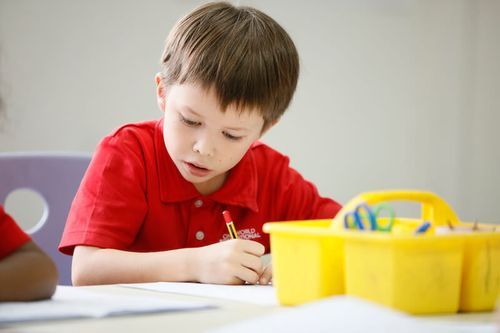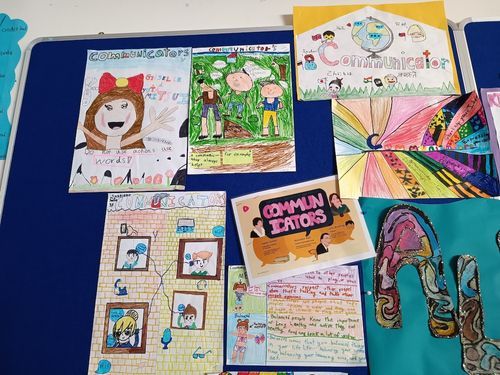At OWIS, our goal is to make learning fun, exciting and stress-free, encouraging students to take the initiative as they build new skills and concepts. When students take an active role in the learning process, they’re empowered to achieve their goals. One of the key ways we help students reach their goals is through meaningful assessments. Here’s an overview of what assessments in our Primary School in Singapore look like and how they help our students accomplish their personal goals.
PYP Assessments at OWIS
Formative Assessments
Formative assessments are on-going and somewhat informal, giving teachers the flexibility to tailor them to meet students’ needs. Teachers assess reading, writing, maths and other PYP skills on a weekly basis and conduct formative assessments as:
- Activities
- Quizzes
- Games
- Experiments
- Class discussions and debates
- Oral and written reflections
- Research projects
These on-going assessments are effective because students get immediate feedback on how they are doing and get to know their areas for improvement.

Summative Assessments
Summative assessments are more formal and occur less frequently than formative assessments. These evaluations tend to be more structured so that students’ progress can be measured against the learning objectives of the course. Summative assessments are carried out at four points during the school year and they gauge students’ abilities and progress over a longer time period. These assessments are also used to report back to parents on students’ progress over the year.
At the end of Grade 5, students participate in a PYP Exhibition, which is the culmination of their PYP learning experiences. Students demonstrate understanding of skills, concepts and knowledge within their Exhibition. For their Exhibition, students design their own unit of inquiry (UOI) under the guidance of their teachers and mentors. They take ownership for their learning and prepare a presentation for their families and other members of the school community to showcase all that they have learnt during the PYP.

Benefits of PYP Assessments for students
Traditional “textbook” assessments often prove ineffective because they are designed to rank students according to how they perform when compared to their peers or test rote knowledge in isolated contexts. Meaningful assessments, however, evaluate students’ individual progress and capture the real understanding of the subject matter.
Our formative PYP assessments gauge students’ overall understanding and provide on-going feedback. Formative assessments enable teachers to identify areas of improvement and devise next steps for students in their learning journey. Frequent feedback gives students an idea of their strengths and areas where they need to improve. When assessments are relevant, students are also able to reflect on their own learning and progress and feel confident that they can succeed.
How Assessments help in Personalised Learning
Assessments in the IB PYP are also effective because they are opportunities to ensure different learning styles are recognised and rewarded. Assessments are a source of information for teachers to observe and understand each student better so they can personalise their approach to cater to individual learning needs. Regular assessments provide a roadmap for teachers to work with students to come up with SMART goals (Specific, Measurable, Actionable, Relevant, Timely).
Formative assessments gives teachers an opportunity to identify where students are having difficulty in understanding a concept. The teacher can then present it in a different way to promote comprehension while accommodating different learning styles and abilities. When students see that they can improve, they’re empowered to work toward their goals.
Another benefit of assessments (both summative and formative) is that they enable teachers to keep parents informed about their children’s attainment and progress. Parents can then better support their children’s learning.
To learn more about IB PYP assessments at OWIS and how our primary school programme facilitates learning, contact us to book a virtual tour.
(This blog was originally written in collaboration with Ms Erin Smith, former Senior Coordinator – Primary School & PYP, OWIS Nanyang.)














